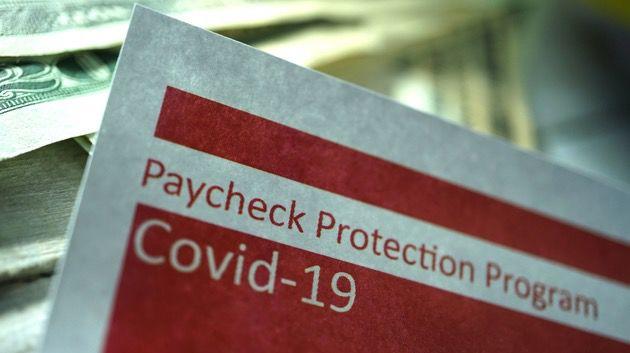
A relief program that threw a critical lifeline to small businesses during the coronavirus pandemic is set to expire Saturday with more than $130 billion remaining in the fund.
The $670 billion Paycheck Protection Program, created when Congress passed the CARES Act at the end of March, will officially close to new applicants Aug. 8. There’s roughly $138 billion remaining in the fund, a number that’s actually increased since the end of June, in part because loans were canceled and duplicate reporting loans were deleted.
Since the program launched at the beginning of April, more than 5.1 million loans worth about $522 billion had been distributed, according to SBA data. The program has helped to save an estimated 51 million jobs.
But as Democratic leaders and White House officials struggle to negotiate the next round of emergency aid, some lawmakers are debating what to do with the leftover PPP money amid a resurgence in COVID-19 cases and a fresh round of business shutdowns that are threatening to slow — or reverse — the economy’s gradual recovery.
Under a $1 trillion stimulus proposal unveiled by Senate Majority Leader Mitch McConnell last week, the money would be repurposed for more targeted aid to the hardest-hit small businesses, which would be eligible to apply for a second PPP loan.
Businesses that have seen their revenue decline by 50 percent or more in the first or second quarter of this year (compared to last year) could dip into the PPP for a second loan.
The aid would be limited to businesses with no more than 300 employees, down from the original 500-worker limit established in the CARES Act. A portion of the money would be set aside for businesses with fewer than 10 workers.
The proposal, drafted by Sen. Marco Rubio, R-Fla., and Sen. Susan Collins, R-Maine, would also ease some of the restrictions on the taxpayer-funded money. For instance, businesses would be allowed to use the loan to purchase personal protective equipment for workers, investments the senators said are needed to ensure the owners can run their businesses safely during the pandemic.
Rubio and Collins have urged Congress to act unanimously on the PPP extension as talks on a broader stimulus bill crawl along.
“Congress has acted unanimously on PPP three separate times, which is a testament to the program’s success at saving tens of millions of jobs and preventing widespread small business bankruptcies,” Rubio said in a statement, adding: “I hope my Democratic colleagues can once again join Republicans, put politics aside, and act decisively to help our nation’s small businesses and the tens of millions of American workers they employ.”
There’s a fear that once the PPP money fades, small businesses could see a wave of layoffs: According to a recent survey released by the National Federation of Independent Businesses, 14% of the companies that received PPP aid are considering laying off employees once they deplete the money. At least 70,000 of those businesses anticipate laying off at least 10 workers apiece.
Another proposal, introduced in May by Sens. Todd Young, R-Ind., and Michael Bennet, D-Colo., is viewed as another alternative to extending the PPP. The RESTART Act would create a new, longer-term program of federally guaranteed low-rate loans, some of which would be forgivable, with terms of up to seven years for businesses with no more than 5,000 employees.
“After speaking with some of the hardest-hit businesses, it’s clear more is needed to help job creators navigate this pandemic,” Young said in a statement.











